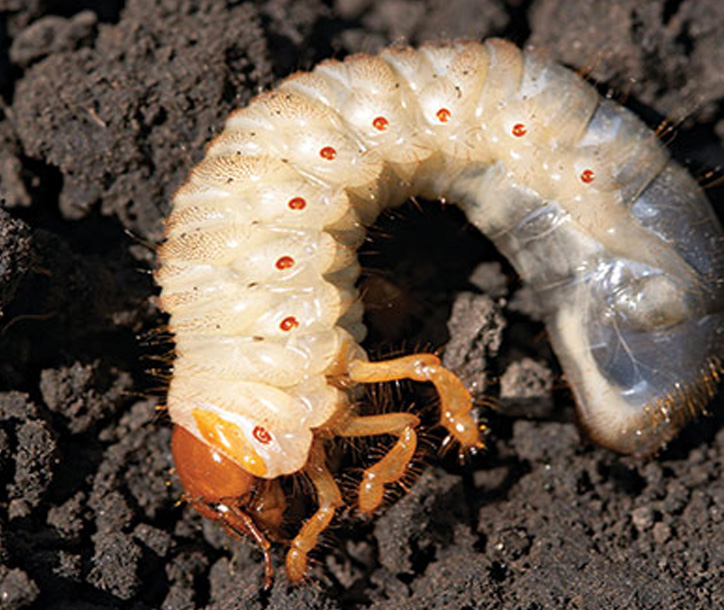
How to Tell If You Have Active Grubs or Grub Damage
September and early October can bring grubs and grub damage to your yard. Grubs are the larvae of beetles. In the summer, Japanese beetles and other similar beetle insects are busy attaching to your plants and eating them. Once they’ll eaten their fill, they’ll mate and then lay eggs. These eggs will drop into the ground and then gestate over the course of a month or two. Once they hatch, they’ll become ravenous grubs and will start feeding on your grass roots in the early fall. After the season is over, they’ll burrow far into the ground and wait until the ground warms up in the spring, then start feeding on grass again and turn into beetles.
While grub damage isn’t always noticeable, it usually can be spotted easily. Here are some steps you can take to see if your lawn is suffering from grub problems.
Look at Your Lawn
Simply looking at your lawn and comparing it to your neighbor’s lawn is usually the first sign that you have active grub damage. If you see brown patches and wilted grass, chances are that you’ve been affected by these little insects. You may also notice animals like raccoons, skunks, and birds rooting around in your grass, because they consider grubs to be tasty treats.

Feel Your Lawn
Grubs eat your grass’s roots, often to the point where the root is damaged so badly that it can no longer deliver water and nutrients to the plant. Without the anchoring effort of the roots, your grass won’t be able to attach to your soil. If you notice that your grass is looking yellow or brown, try to grab the ends of your lawn and pull up. If your grass pulls up easily, that’s a sign of grub damage. Now, take a look at the soil. If you see small, white,
c-shaped insects close to the top of the soil, those are grubs, and they signal that you have active grub damage.
While destructive, grub damage at this point in the season can be treated by Superior Lawn Care’s curative grub control. This application should be heavily watered into the lawn so that it can begin working and curbing the damage that grubs can cause. Call Superior Lawn Care today to learn more about this grub control application. We service all of southwestern Pennsylvania, including Peters Township, Penn Township, Indiana, North Huntingdon, Cranberry, Wexford, and Murrysville.

